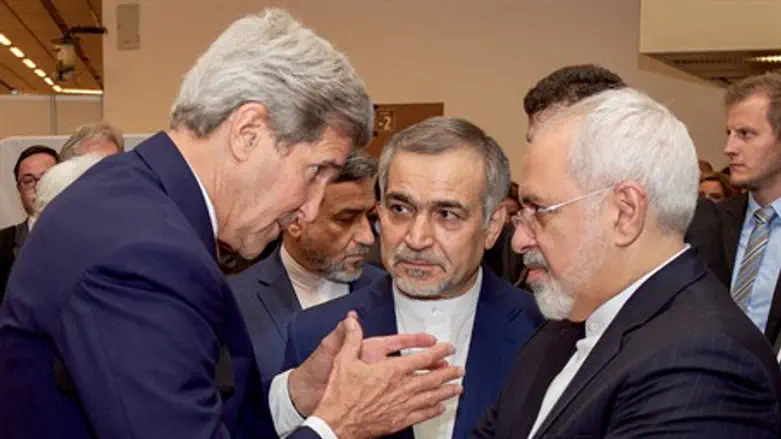
Secretary of State John Kerry will meet Iran's Foreign Minister, Mohammad Javad Zarif, this week amid Iranian complaints that it is not getting the sanctions relief it deserves under last year's nuclear deal, The Associated Press reported Monday.
State Department spokesman John Kirby said Kerry and Zarif would meet in New York on Tuesday before Kerry flies to Saudi Arabia to join President Barack Obama at a summit with Gulf Arab leaders.
The Kerry-Zarif meeting follows complaints from top Iranian leaders that the United States is not fulfilling its part of the nuclear agreement, in which Iran curbed its atomic program in exchange for sanctions relief.
The U.S. insists it has met its obligations but is facing demands from foreign banks to make clear what transactions with Iran are legal and which are still punishable under remaining sanctions, noted AP.
"We're obviously aware of these concerns that they have expressed about the status of sanctions relief," Kirby was quoted as having said. "And the secretary is very mindful that that topic will come up tomorrow, that that is very much on Foreign Minister Zarif's mind."
He declined to say whether Kerry would provide Zarif with any notice of action the administration might take in regard to sanctions relief.
Despite the sanctions relief Iran received when the nuclear deal was implemented, Iran says that it continues to face financial difficulties.
Over the weekend, Zarif said he would ask the United States to ease restrictions on non-American banks doing business with the Islamic Republic, saying it would help reassure Iranians over the nuclear deal.
American officials recently said that the Obama administration is considering easing financial restrictions that prohibit American dollars from being used in transactions with Iran, sparking anger among lawmakers opposed to the nuclear deal with Iran.
"Iran will definitely put pressure on the United States to pave the way for the cooperation of non-American banks with Iran," Zarif was quoted by AP as having said on Saturday at a Tehran news conference with visiting EU foreign policy chief Federica Mogherini.
"The other party, particularly the United States, is required to implement its commitments in banking cooperation," he charged at that conference.
A day earlier, the head of Iran's central bank Valiollah Seif had accused the U.S. and the European Union of failing to honor the nuclear agreement by keeping Iran locked out of the international financial system.
Meanwhile, on Monday House Speaker Paul Ryan renewed his opposition to any easing of the current restrictions on Iran.
"The administration should definitively rule out any potential workaround that provides Iran — directly or indirectly — with access to the dollar or the U.S. financial system," he said in a statement quoted by AP.
"Instead of helping the regime get richer, the administration should hold it accountable for its continued ballistic missile tests, egregious human rights violations, and support for terrorism. We will continue to oppose any efforts to grant further concessions to the world's leading state-sponsor of terrorism," Ryan added.
Some of the opposition to providing Iran with further relief is due to the fact that the Islamic Republic continues to violate UN resolutions by carrying out ballistic missile tests. In fact, the United States and its European allies recently demanded that the UN Security Council take action over Iran’s repeated ballistic missile tests, which they noted defied a United Nations Security Council resolution that endorsed last year's nuclear deal.
In January, the United States imposed sanctions on Iranian companies and individuals in response to the October missile tests. Last week it named units from Iran's Islamic Revolutionary Guard Corps (IRGC) involved in the country's ballistic missile program to its sanctions blacklist.
But Iran has remained defiant and continues to insist that it will continue to develop its ballistic missile program despite the sanctions.
